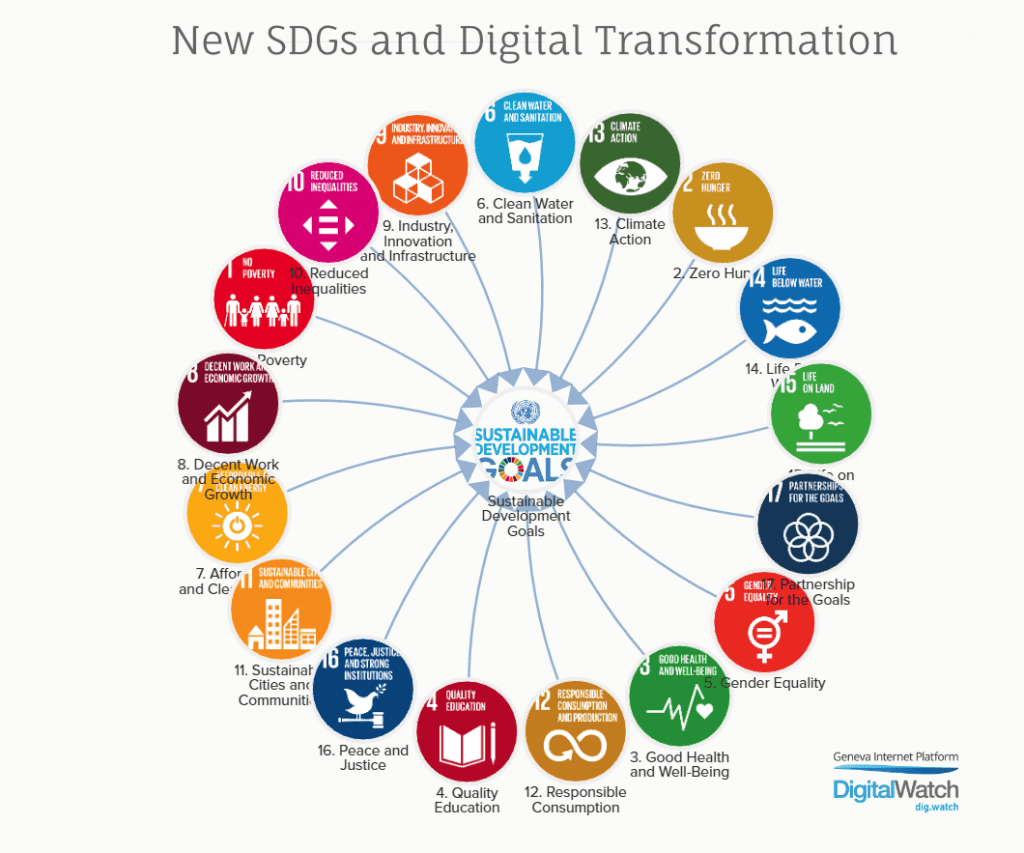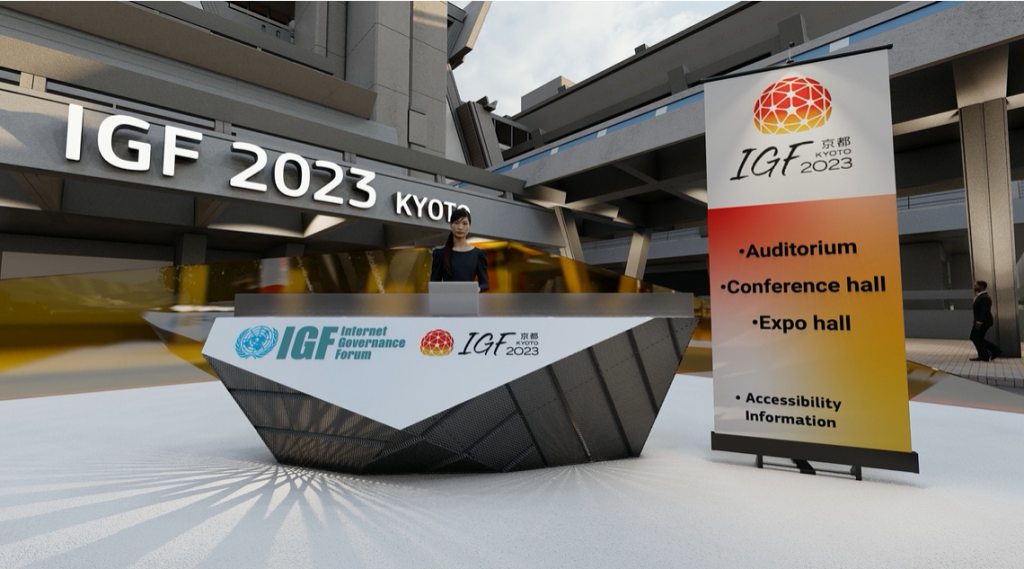IGF Daily Summary for
Sunday, 8 October 2023
Dear reader,
If you’ve arrived in Kyoto, good morning.
If you’re on your way to Kyoto, happy travels.
If you’re following the IGF online, we hope you’re settled in comfortably.
Welcome to the IGF2023 Daily #1, your daily newspaper dedicated to the 18th Internet Governance Forum (IGF) discussions.
As per tradition, Diplo and the Geneva Internet Platform (GIP) are providing just-in-time reporting from IGF2023, bringing you session summaries, data analysis and more. What’s not traditional is the addition of DiploAI, our new AI reporting tool, to the mix. In this hybrid system, Diplo’s human experts and AI tool work together to deliver a more comprehensive reporting experience.
Our AI will prepare session reports for all the events, while our dedicated human team is curating daily highlights from these reports, which will be delivered to your inbox each day. This issue covers the highlights of Day 0 at IGF2023 on 8 October 2023.
Let’s begin,
The Digital Watch team

| The summary of the discussions |

High-Level Leaders Session I: Understanding Data Free Flow with Trust (DFFT)
The centrality of data marked the kick-off of IGF’s high-level debate. Speakers during the High-Level Leaders Session I: Understanding ‘Data Free Flow with Trust’ (DFFT) anchored data in the wider context of tackling climate change and dealing with health challenges, among others. Thus, cross-border data transfers become critical for our shared digital future.
The Data Free Flow with Trust (DFFT) concept was introduced to ensure these transfers go smoothly. DFFT aims to enable the flow of data worldwide while ensuring data security and privacy for users.
However, the concept is not without challenges: The global data landscape is fragmented with diverse data security and privacy perspectives. Some of the concerns mentioned at this session were: potential privacy threats from third-party access and government surveillance, as well as the credibility and reliability of data sources. These concerns underscored the importance of implementing explicit principles on governmental access, as demonstrated by the OECD’s Trusted Government Access Program. It was also highlighted that building trust in institutions responsible for data collection is imperative, as is effective policy oversight.
Cross-sector collaboration is also needed to strengthen data governance. Promoting regulatory and operational sandboxes has also been proposed as a practical solution to foster good governance among stakeholders.
New initiatives for data governance are needed to establish a robust global framework capable of efficiently managing data to ensure secure and effective data flow. The idea to create a permanent international forum for data policy dialogue has been gaining wider acceptance, including support from G7 nations. Such a forum should avoid the risk of fragmented data laws and regulations.

High-Level Leaders Session II: Evolving trends in mis- & dis- information
An MIT report from 2018 found that lies spread six times faster than the truth. The situation is worsened by rapid advancements in generative AI, which can create synthetic content nearly indistinguishable from authentic content. This problem is even more critical in the Global South, where weaker institutional structures make populations more susceptible to misinformation.
What can be done to tackle misinformation and disinformation? A holistic approach needs to be taken and it must be multistakeholder in nature, the High Level Leaders Session II: Evolving trends in mis- and dis-Information noted. One part of the solution is enhancing media literacy, to proactively tackle the strength and attraction of disinformation, known as pre-bunking. Users also need to be aware of iof the health and accuracy of their data, and consume data in a balanced and unbiased manner (this was likened to maintaining nutritional balance in your diet).
Another part of the solution is heightening the responsibility, transparency, and accountability of tech platforms, which should advance responsible innovation, boost fact-checking capabilities and comply with a Code of Practice against disinformation.
Strengthening regulation also forms a crucial part of the solution, but the introduction of new regulations unleashes its own set of challenges, topmost being their slow emergence, always lagging behind new technologies for content generation, including fake content. A revised governance structure that rewards the sharing of accurate information to combat the appeal of false news should also be in place. Emerging as a novel regulatory approach is the concept of ‘digital constitutionalism,’ offering a promising way to control this amplified influence of tech companies. This involves crafting collaborative global legislation and international frameworks capable of effectively confronting and regulating these platform companies.

High-Level Leaders Session III: Looking ahead to WSIS+20: Accelerating the multistakeholder process
2025 will mark 20 years since the first World Summit on the Information Society (WSIS) was held, and it is time for a review. The principles established during WSIS are still relevant, and the multistakeholder approach is crucial for effective internet governance, as highlighted by High-Level Leaders Session III: Looking ahead to WSIS+20: Accelerating the multistakeholder process. WSIS has made significant progress in establishing a human-centric, digitally connected global society through the use of ICTs.
WSIS+20 is at a turning point, building on what worked well and adjusting to what is ahead of us, especially related to challenges triggered by AI. In this new context, the following issues remain high on the agenda of WSIS discussions: inclusion, bridging the digital divide, and putting human values at the centre of AI and digital developments.

High-Level Leaders Session IV: Access & innovation for revitalising the SDGs
As the SDG clock ticks ahead of the 2030 SDG deadline, digital is more and more considered a way to rescue the SDGs. This was clear during the SDG debates at the UN General Assembly in September. This call to add a digital element to the SDGs echoed during the High-Level Leaders Session IV: Access & Innovation for Revitalising the SDGs. The session listed numerous areas where digital can support the 2030 Agenda, including poverty, inequality, climate change, and the digital divide.
One of the examples from the session noted that initiatives utilising technologies such as AI, cloud computing, sensors, drones, and blockchain in smart agriculture are being implemented globally to tackle SDG2 and eradicate hunger.
The session debate listed the following key issues in the nexus between the SDGs and digitalisation: ethical considerations, privacy concerns, digital literacy and equitable access to technology, responsible governance, and education.
The discussions highlighted the interconnectedness of these goals and emphasised the need for a comprehensive, cooperative approach. Collaboration and partnerships among all stakeholders, including governments, the private sector, and civil society, are deemed essential for the successful implementation of digital solutions in advancing the SDGs. Creating the position of goodwill ambassador for digitalisation and SDGs and initiating digital enlightenment movements can further help spread awareness and knowledge.

IGF Leadership Panel paper: The Internet We Want
The IGF Leadership Panel, a body established by the UN Secretary-General to support and strengthen the IGF, presented its paper The Internet We Want in a Day 0 session. According to the paper, the internet needs to be:
1. Whole and open. The potential fragmentation of the internet threatens social and economic development benefits, while also harming human rights.
2. Universal and inclusive. Data show that 2.7 billion people remain offline. Connecting them not only requires infrastructure, but also digital skills, and applications and content relevant for users. Frameworks that enable internet connectivity should be based on light-touch ICT policy and regulations, and encourage universal access, competition, innovation, and the development of new technologies.
3. Free-flowing and trustworthy. Trust is strengthened when governments adopt robust and comprehensive commitments to protect the rights and freedoms of individuals. Cooperation between governments and stakeholders, including business and multilateral organisations, is needed to advocate for interoperable policy frameworks that facilitate cross-border data flows, enabling data to be exchanged, shared, and used in a trusted manner, thereby fostering high privacy standards.
4. Safe and secure. Robust frameworks for high levels of cybersecurity should be established, along with strong recommendations for legal structures, practices, and cross-border cooperation to combat cybercrime.
5. Rights-respecting. Human rights must be respected online and offline, and a human rights-based approach to internet governance is required to realise the full benefits of the internet for all.
| What lies ahead? |

300+ sessions! That’s what’s in store for IGF2023. We will be with you throughout it all, from the high-level leaders track, parliamentary track, youth track, main sessions, workshops, dynamic coalition sessions, open forums, town halls, lightning talks, award launches, and networking sessions. Bookmark our dedicated IGF2023 page on the Digital Watch observatory, or download the app to read the session reports.
| Diplo/GIP at IGF2023 |
Diplo and the GIP are actively engaged at IGF2023, organising and participating in various sessions.

Diplo’s Director of Knowledge Sorina Teleanu (left) and Diplo’s Executive Director Jovan Kurbalija (right) during Diplo’s Day 0 event.
We kicked off Day 0 with a session on bottom-up AI and the right to be humanly imperfect, where we discussed how AI models should reflect more diversity, relying on different communities’ distinct traditions and practices. Such an approach will contribute to a more authentic, bottom-up AI model that does not limit itself to predominantly European philosophical traditions. We also noted that the uniqueness and imperfection of human traits are invaluable characteristics and essential considerations in the development of AI.
We’re also at the IGF2023 Village! If you are on the ground at IGF2023 in Kyoto, drop by our Diplo/GIP booth. If you’re joining the meeting online, check out our space in the virtual Village.


